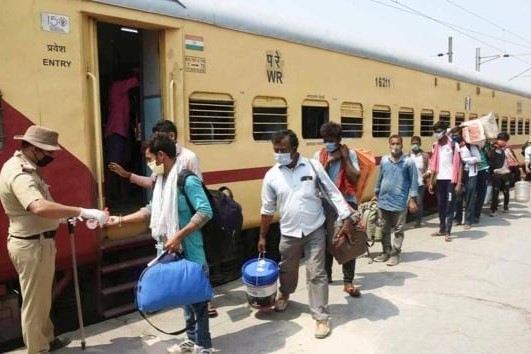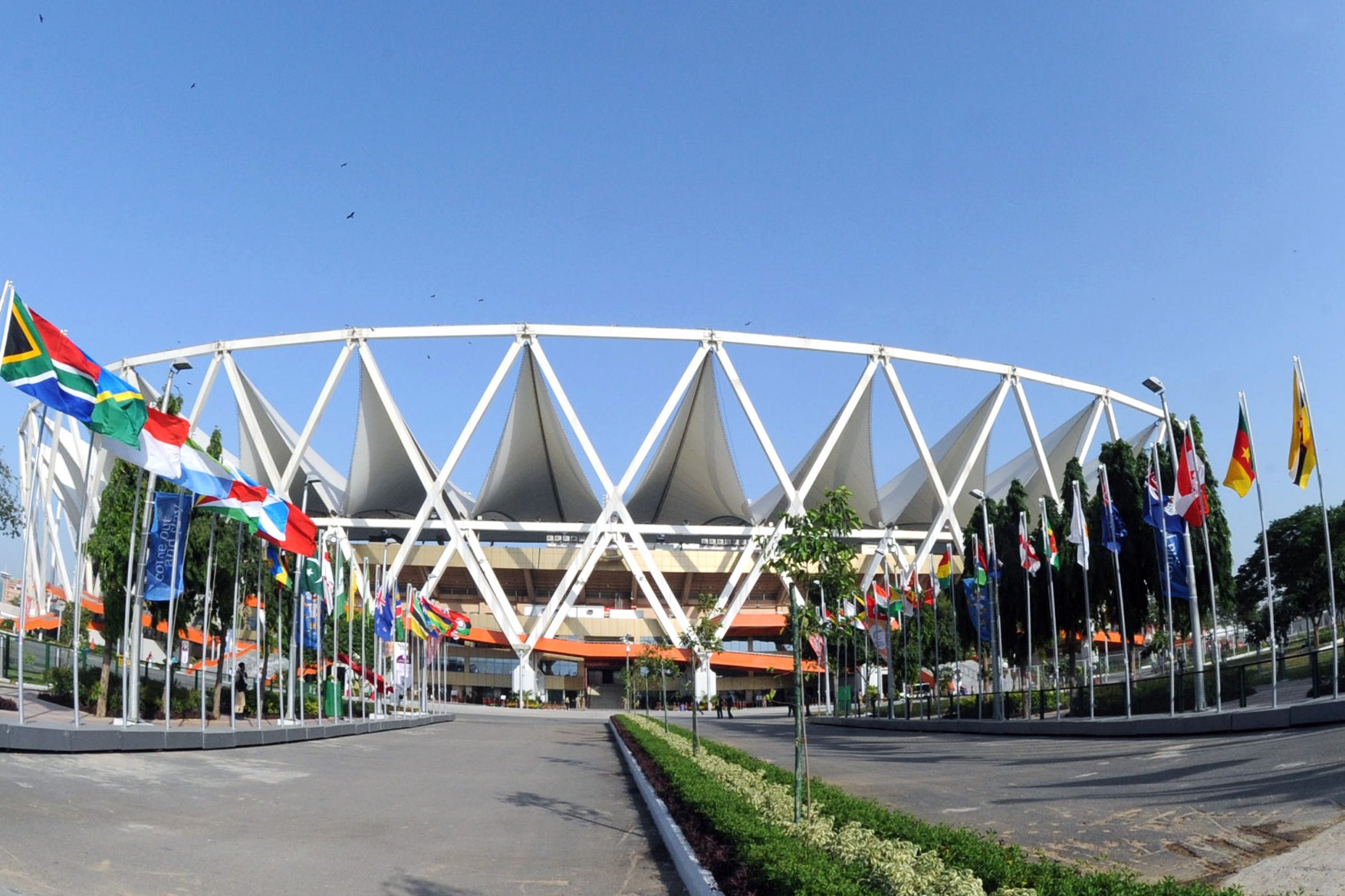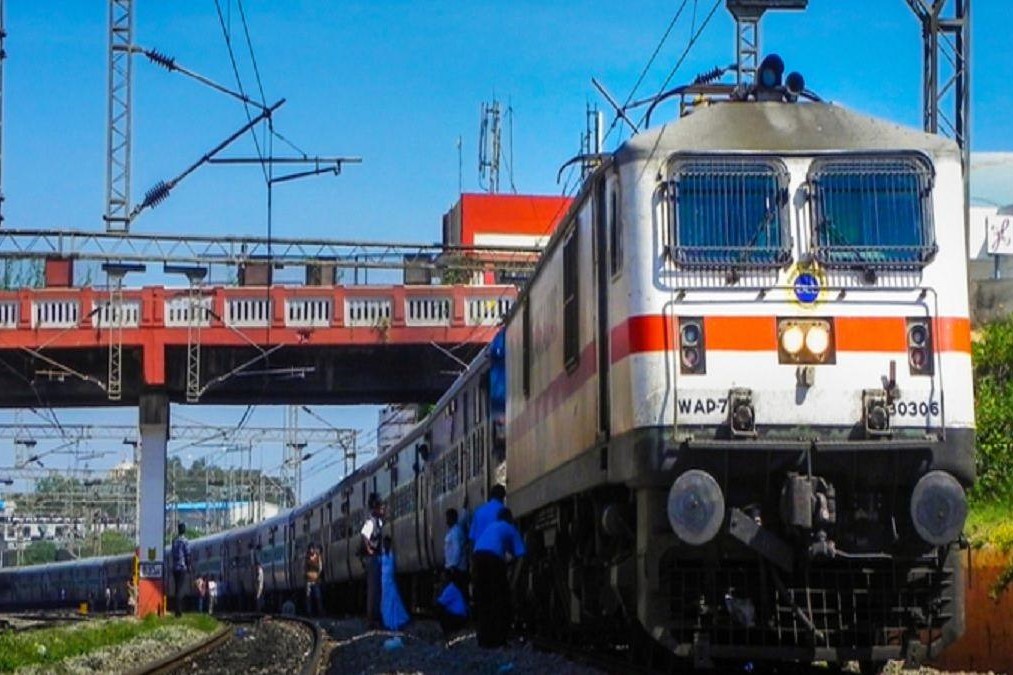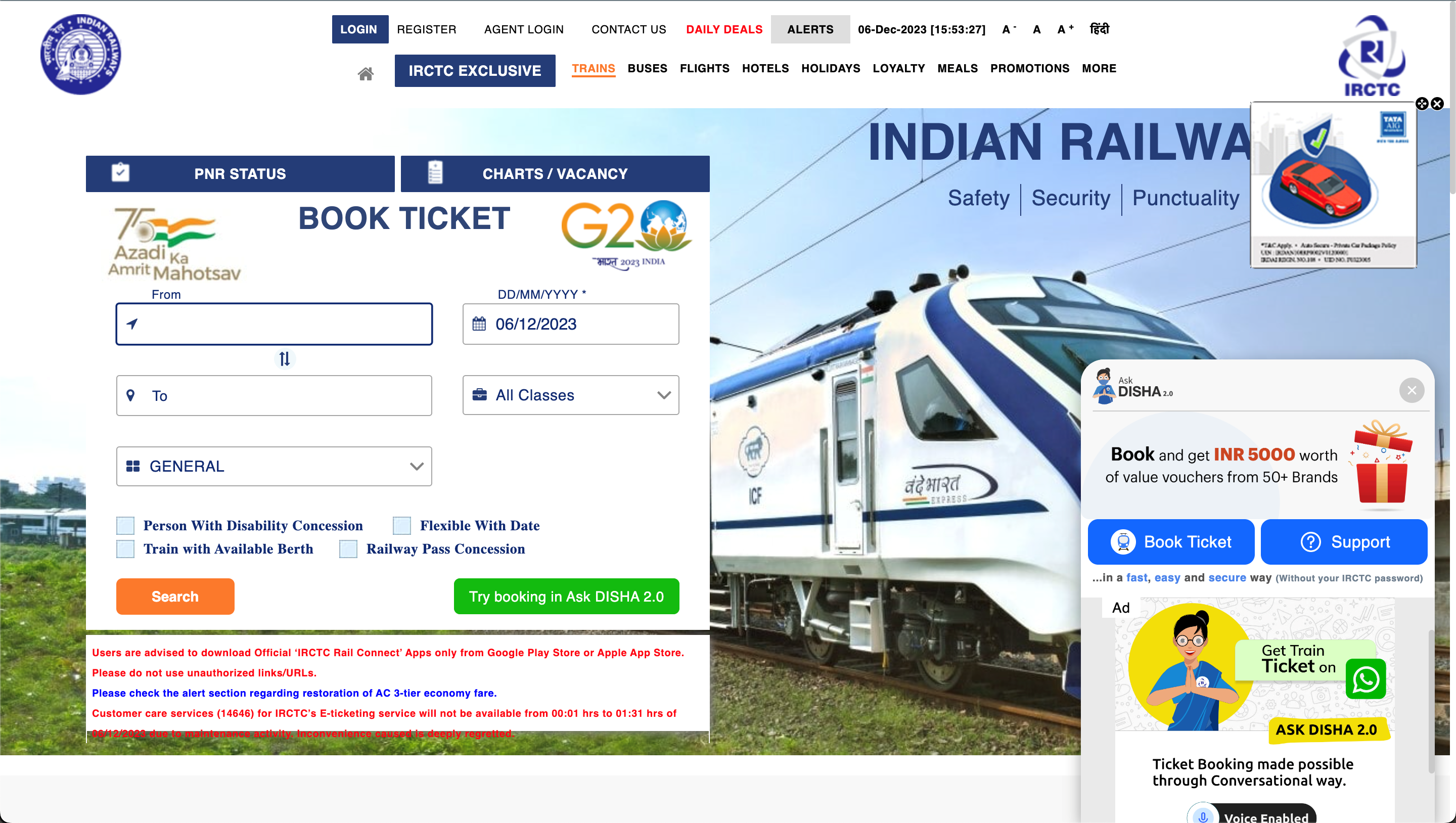Background
No one on this planet could ever imagined in the weirdest of the dreams that a virus would send crashing our entire world into small pieces of a jigsaw puzzle that would become rather very difficult for the humanity to join back.
The name COVID-19 is going to be an inseparable part of the memory of the entire mankind for a very long time and will remind us of the hardships that was faced by the entire world amidst the outbreak of a deadly uncontrollable pathogen – a pathogen that plunged the entire world into a severe pandemic followed by socio-economic turbulence for decades to come.
Within two months of the mysterious spread of the novel Corona Virus, the virus started spreading at an exponential rate in Europe, Middle East and America. The virus knocked the doors of the country in the month of January and later started spreading quietly and rapidly in most of the states.
With an aim to contain the virus and at the same time build the required medical infrastructure for treating COVID-19, the Central Government announced complete LOCKDOWN of the entire nation from 24th March to 14th April, 2020. The lockdown thus imposed led to a complete halt of all the business and economic activities of the country having cascading effect on the life of the poor and lower income group of which the major chunk were the daily wage migrant labours working in cities and urban centres to earn their livelihood.
With the virus fast spreading and need to contain it, majority of the states recommended for extending the lockdown to 3rd May,2020 to which the central government agreed. Though lockdown had played a very important role in slowing the spread of the virus, it also led to the socio-economic fall of the poor people including the migrant labours who were in a state of utter despair due to loss of employment and were left with no work or food. The extension of the lockdown further struck panic among the migrant labours who started their arduous journey to their homes either on foot or on bicycles covering hundreds of kilometres or started accumulated in railway stations and bus terminus requesting central and state governments to ferry them. home to avoid death due to starvation.
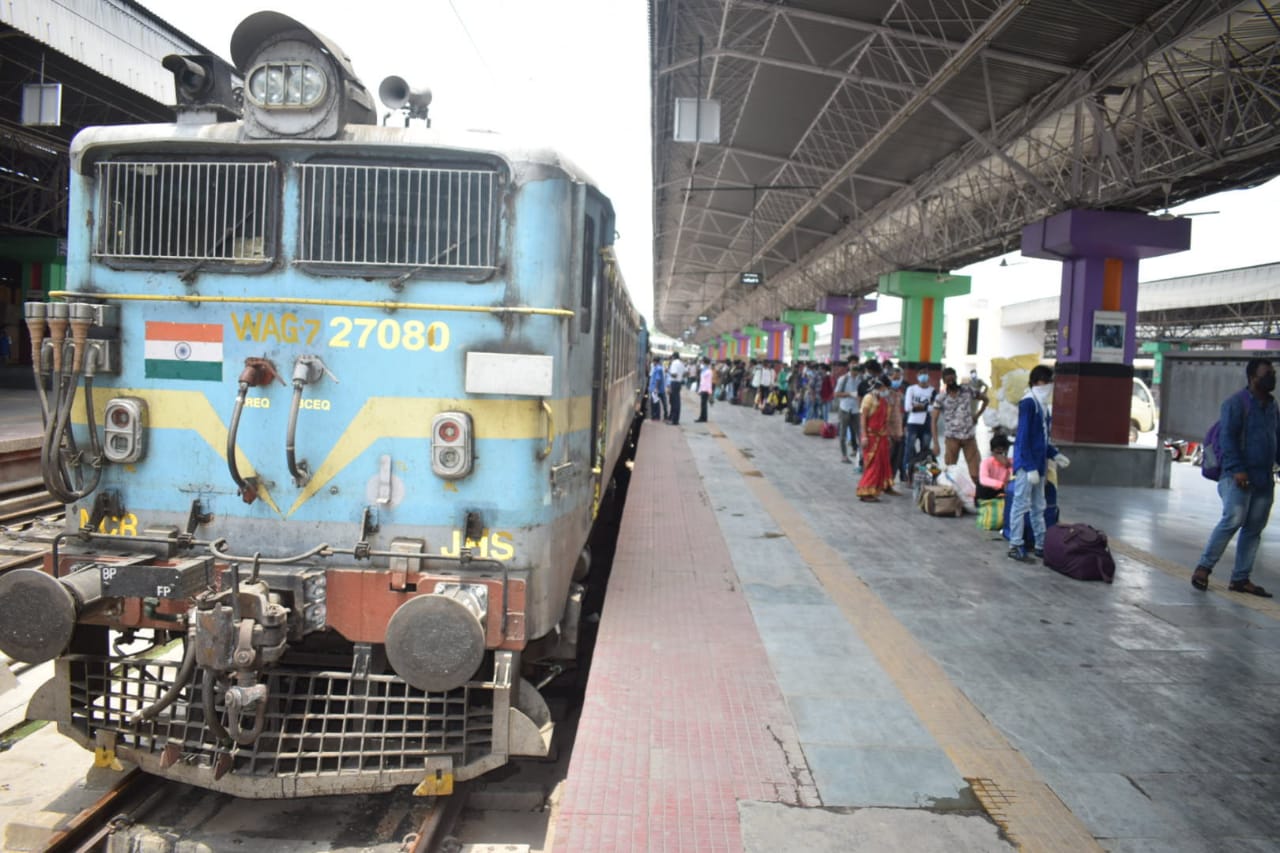
The Advent of Shramik Specials
As the lockdown further extended to 17th May, 2020, the central and state governments quickly planned to safely ferry lakhs of migrant labourers stuck in a number of urban centres to their homelands through road and rail in an organized manner to prevent them from walking all the way down and collapse en route out of malnutrition and dehydration in the ongoing summers.
To ensure that the migrant labours are well taken care of during their journey in these trains, Ministry of Railways entrusted IRCTC with the challenging task of providing free of cost meals and water to the labours travelling in these trains.
During this period, in the absence of regular Director Catering services in the company , I was also looking after duties of Director Catering Services in addition to Director ( Tourism And Marketing). So providing food to these migrant labourers with the utmost dignity and sincerity was all the more my duty. Amidst the unprecedented lockdown conditions that paralysed the entire nation due to suspension of all business and economic activities barring few essential services, IRCTC planned for serving all the passengers without any laxity.
Railways in past have always came forward in providing support services but I am of firm opinion that These special trains operated are in itself perhaps one of the Largest Rescue Missions conducted by any railways across the world. The mission which initially started with operation of just 5 trains in a day on 1st May peaked to 276 trains in a day within a span of just 15 days and due to abnormal situations around ,challenged our years of experience of mass catering too.
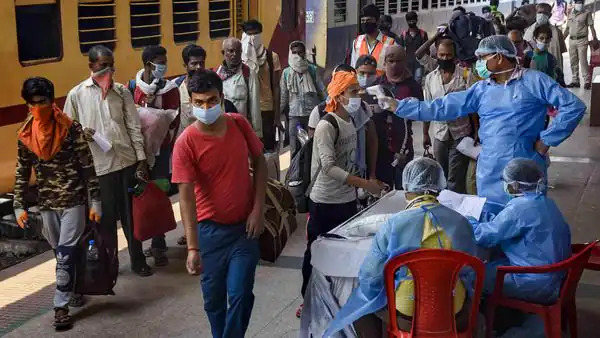
Role of IRCTC in Serving Meals To Workers On Board
Considering the short notice in which the trains were departing with an average of 1200 pax per train which later rose to 1600 pax per train, IRCTC quickly mobilised its team of officers and staff at Corporate, Zonal, Regional, Area and station offices and also its network of catering business partners to plan and arrange for on-board meals and packaged drinking water for the distressed labours across all the states from where the trains were being operated.
Challenges ahead: Together We Did It
There was commitment to serve distressed migrant workers so zonal teams of IRCTC implemented dynamic strategies to address the complexities arising from delayed operations, diversions, and re scheduling. The critical operation required a swift response strategy, adopting a "learning from experiences and gearing up for the immediate future" approach. Close coordination with Railways was maintained, and IRCTC staff worked round the clock at Zonal Commercial Controls. The dynamic nature of train schedules due to last-minute information from state governments posed significant challenges, resulting in delays and diversions. The challenges in providing meals on the Shramik specials were manifolds but the team IRCTC was more than determined to face all hurdles in this critical operation.
Garnering the core resources of Kitchen Units in the lockdown environment was difficult as most of the catering business partners were faced with problems of unavailability of manpower comprising of cooks, helpers and vendors coupled with constraint of ensuring continual supply of raw materials for food preparations in the precarious situation.
Further, 80% of the trains were moving from all states and converging to the states of Uttar Pradesh, Bihar, Jharkhand, Bengal and North East due which huge number of trains were halted before the terminating stations for carrying out the Screening formalities by the receiving states.
.
Above all, the role and contribution of the State in providing meals at originating stations faltered at many occasions raising the dependency bar on IRCTC. Adding to this, the untimely assembling of the workers at the originating Stations often led to delayed departures disarraying the scheduled meal mapping of locations.
Above all, the rising summer temperatures due to scorching heat and a sultry environment often resulted in meal preparations going stale, thereby arising the need for urgent replacement and supplement of meals at stations falling ahead in the route.
As compounding effect, the team faced unfortunate incidents, such as the disruption in Visakhapatnam due to a chemical plant leak and the impact of severe cyclonic storm "Amphan" in West Bengal. The IRCTC team overcame these adversities, ensuring the uninterrupted supply of meals, water, and special requirements.
Starting with just 5 trains on 1st of May 2020, IRCTC has catered to more than 3900 trains by 4th of June 2020 which originated from various urban centres across the country to evacuate the migrant labours to their home towns mainly in Uttar Pradesh, Bihar, Madhya Pradesh and West Bengal. However overcoming all these challenges , we could serve more than 1.5 cr meals.
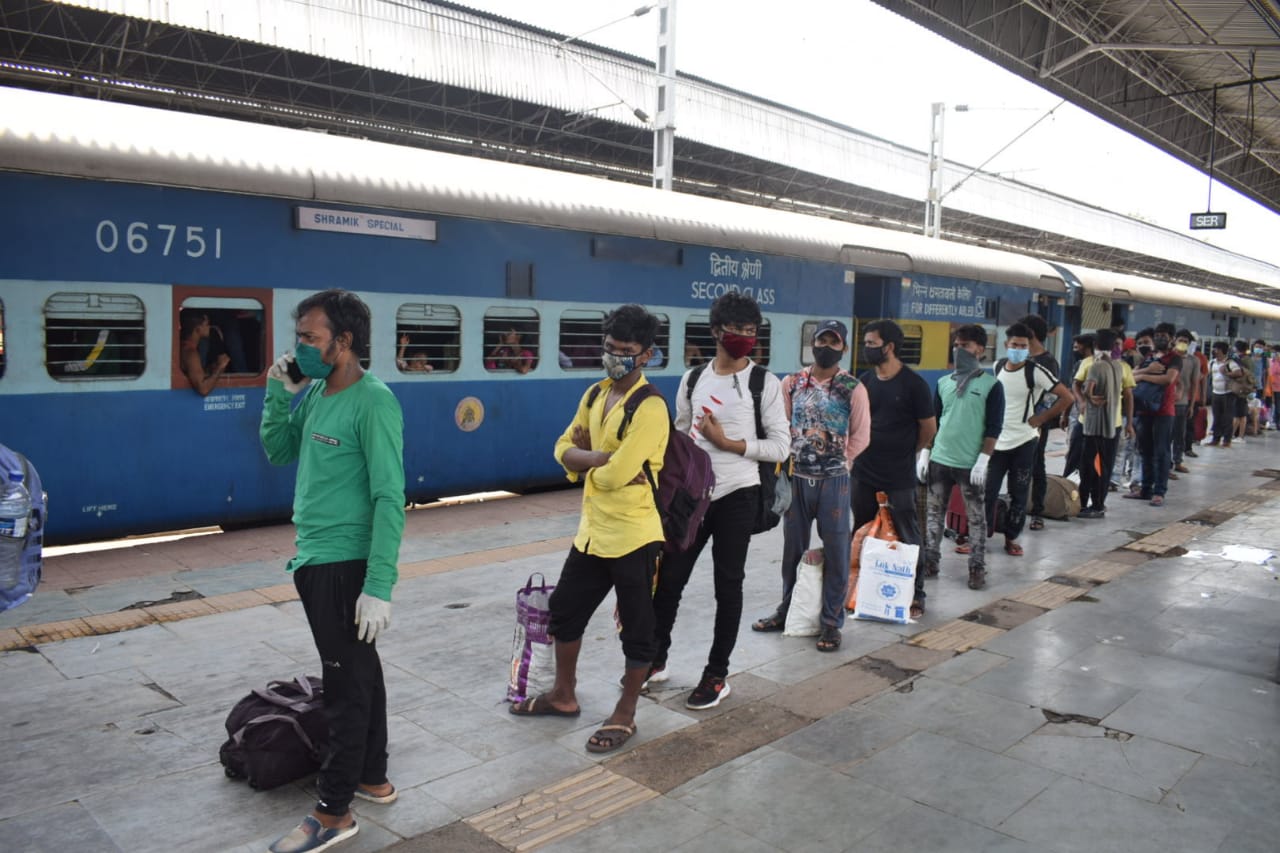
Handling Feedback Through Social Media: In the absence of normal feedback mechanisms, IRCTC leveraged social media, especially Twitter, for feedback and interaction. A round-the-clock monitoring system was established to address concerns and ensure timely meals and water supply.
The case study will not be complete If I not discuss about the losses to IRCTC.Such, was the call of God that amidst this unprecedented pandemic and acute pressure to serve the distressed migrant workers of the nations , West Zone office IRCTC was very unfortunate to lose one of its shining stalwart, Shri Narendra Pipil, Jt. General Manager /Catering Services, IRCTC on the 20th of May 2020,due to a cardiac arrest. He was playing a very important role in this juggernaut. It was a huge shock and disbelief for the entire IRCTC Team and Railways as the Officer was intricately involved till the last hours on that fateful evening. Not wanting to let down his fighting spirit, the IRCTC team stepped up harder only aspiring to give their veteran an apt final adieu who will always be remembered for his committed and sincere approach towards work and for his jovial nature”.
The Experience – Corona warriors with a Difference
Team of Corona Warriors at IRCTC is going to take back a lot of memories and stories to share with the future generation that amidst this World Pandemic, how IRCTC and Railways stood tall to help their fellow citizens in need to reach their native places. This was a war which was fought not for winning a territory but to win over disappointment and distress caused by the Covid – 19 pandemic. The field officers, dubbed "Corona Warriors," worked under pressure, ensuring the safety of both themselves and the meal services. They went beyond their duties, interacting with passengers, addressing specific needs, and contributing to a memorable national effort.
Conclusion
The term Frontline Workers often conjures images of doctors in Hazmat suits and soldiers in uniform. But during the pandenic ,workers across a vast array of industries have found themselves as the essential parts of the machinery that kept the world in motion despite all odds, required to do their jobs despite great risk. In this entire gamut of activities one of the Facilitators was TEAM IRCTC who were committed to provide Shramik Meals to the millions transiting from their work locations to their natives, rightly earning the tag of ‘IRCTC Corona Warriors with a Difference!!! And I find that as a director catering service , I was chosen by Almighty as a leader of mission to serve meals to helpless and the distress worker during this heavy pandemic.
